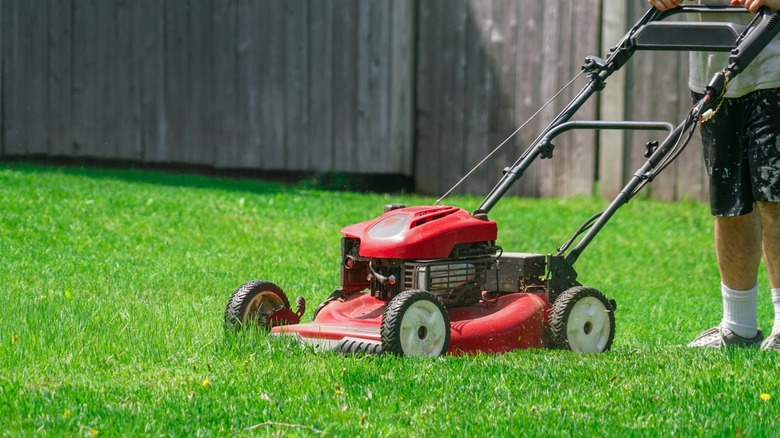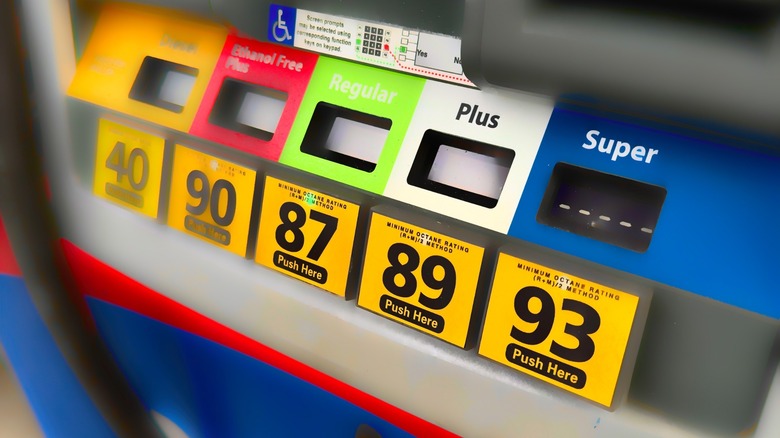Can You Use Premium Gas In A Lawnmower? Here's What Happens If You Do
You've probably been there. Standing in front of the pump, eyes darting between regular, mid-grade, and premium. Premium just sounds better. It's more expensive, sure, but you feel premium means better performance. If you're filling your car, this may be true. But if you're filling your lawnmower, the story changes. Most lawnmowers are designed to run on regular unleaded gasoline with an octane rating of 87. This is so regardless of whether it's a push, self-propelled, or riding mower. That's what certain manufacturers recommend. Premium gas, with its higher octane, is made for high-compression engines. For the most part, only turbocharged engines actually need premium gas. Think sports cars and not small lawn equipment.
The octane rating isn't necessarily about quality. It is about how resistant the fuel is to engine knock. Lawn mower engines have low compression ratios, so they don't need the extra resistance premium offers. Using premium in your mower is like feeding gourmet steak to a goat. It's as expensive as it is pointless. There's also ethanol content to consider. Ethanol attracts moisture, which can lead to corrosion and sticky deposits in small engines. For lawnmowers, fresh fuel with ethanol-free or low-ethanol content is ideal. Premium or not. With that said, here's what happens if you use premium gas in a lawnmower.
What actually happens when you put premium gas in a lawn mower
If you fill up your mower with premium gas and pull the starter cord, it will likely run. The mower won't suddenly become a speed demon or slice grass with samurai precision. In fact, you probably won't notice a difference at all. There are many dire mistakes everyone makes with their lawnmower. But this is not one. This is because small engines aren't built to need high-octane fuel. Octane doesn't give you more power. It just resists knocking in engines that run hotter and at higher pressures. Your mower's low-compression design doesn't generate enough pressure. So it does not require premium knock protection. That means the premium advantage never kicks in.
The biggest difference you'll see is in your wallet. Premium typically costs more per gallon than regular. Considering most mowers only hold about half a gallon to a gallon of fuel. So, the extra cost per fill-up may seem tiny, but over a season, it adds up with zero return on investment. There is no evidence that a premium will extend your mower's lifespan or keep it cleaner. If your premium contains ethanol, which most pump gas does, you're still dealing with the same potential moisture issues. You'll get the same gummed-up carburetors and fuel degradation as you would with regular gas.

